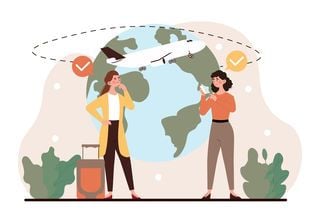Meaningful guest experiences - best practices from Sri Lanka
Meaningful Guest Experience: Is Sustainability the Secret Ingredient?
Sustainability in Hospitality — Viewpoint by Maribel Esparcia Pérez
What is a meaningful guest experience for you?
A meaningful guest experience entails genuine human connection(s) with local host(s) while being able to embrace and respect the sensitivities of natural ecosystems within a destination. Some of the most inspiring and memorable guest experiences I've had were those where I made friends, learned new skills, tested my own abilities, and challenged my thinking. Meaningful experiences also broaden my horizon on new ways of living and doing better business, for example, learning how to upcycle waste materials creatively in design and construction, or to innovate with local ingredients and materials.
Meaningful experiences typically inspire me to take home "learnings" that I can implement in my day-to-day life. I aspire to experience comfort yet adventure, a sense of responsibility in how I consume and travel, and a feeling of novelty. I find meaning when afforded the opportunity to learn and grow as a person. Much of that learning and growth comes in the form of identifying and observing sustainable- and in some (rarer) instances regenerative practices as well. I"m more likely to remember and take back learnings from an experience that challenges me and nudges me slightly out of my comfort zone.
Do you have examples of best practices in regards to sustainable hospitality and meaningful guest experiences?
I've witnessed several sustainability best practices in hospitality. At the Horathapola Estate in Sri Lanka's Kurunegala District, guests are invited to learn about the value of the Coconut Palm Tree and its importance for community sustenance in the Kurunegala District. Horathapola is a heritage coconut estate steeped in agricultural history, tucked away from traditional tourist routes; a century's old Planter's bungalow has been converted to accommodate a small number of guests at any given time, maintaining a healthy ratio of approximately 1 guest per 2.5 acres at most. Guests are afforded the opportunity to learn about organic and traditional agricultural practices, providing valuable perspective into the evolution of Sri Lanka's coconut industry in addition to the multiple uses of the Coconut (including from the fruit, flower, sap, tree trunk, leaves, shells, husk). All experiences are hosted by staff members from the local area, and much of the produce served on property is sourced from the Estate itself, or from smallholder suppliers in neighboring villages. Food is prepared using heirloom recipes.
At the Gal Oya Lodge in Eastern Sri Lanka, guests are hosted on property by the native Veddahs of Rathugala, one of Sri Lanka's last remaining indigenous communities. As the original custodians of the lands on which the Lodge sits, the Veddahs of Rathugala were consulted during the design and development of the property and its experience offerings. The Lodge was notably designed to blend seamlessly with the sensitive native ecosystems – away from high footfall tourism. Guests are provided an opportunity to experience wildlife on foot and forage in the forests surrounding the property, in both instances guided by the Veddahs themselves- leaving a low (or in some cases no) footprint. Guests can learn about the health benefits of native ingredients and indigenous cooking with the Veddahs.
At Kitesurfing Lanka, on Sri Lanka's Western Kalpitiya peninsula, mangrove restoration is an active part of the guest experience. While Kitesurfing is not a native practice to Sri Lanka, guests from around the World descend on Kalpitiya for its remarkable water and wind conditions – and are provided with unique insights and access to a rural village lifestyle that is largely agrarian and fishing-based. Between kitesurfing sessions and other water and land-based activities, guests and staff partake in mangrove restoration work and/or beach clean-ups. Both guests and staff can also contribute to local school programs (educating and teaching children English and other skills) or participate in local palm weaving traditions at neighbouring village homes – taking back with them invaluable life skills that are centered around the principles of nature, balance and heritage. Kitesurfing Lanka made the bold decision to avoid developing a swimming pool given the localities struggles with potable water and power generation, instead encouraging guests to embrace the perfectly safe and calm natural lagoon and sea – which provide more authentic and zero-emissions swimming experiences compared to a manmade, resource-intensive swimming pool.
All of these businesses encourage guests to stay at least 3 or 4 nights given the variety of activities available on or within close proximity to the property. Bicycles are provided for fossil-fuel free exploration of the local surroundings. All these businesses employ diligent waste management practices including composting and in some cases biomass for energy generation whilst also working to uplift employee and community welfare.

 by
by 

